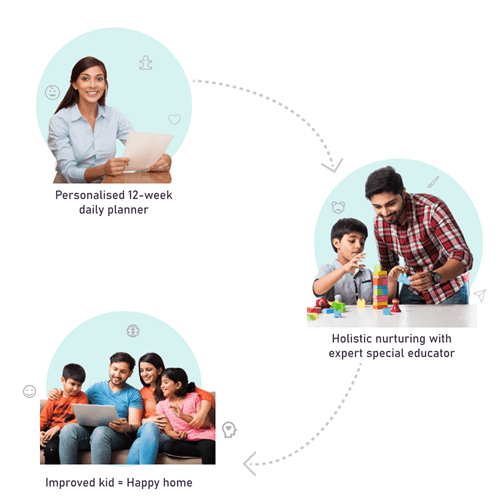5 Proven Strategies for Effective Special Education for Autism
Body
Autism is a complicated neurological condition. In this case, children are socially awkward, communicatively challenged, and behave abnormally. As a guardian of a child or just a career, it may be a daunting task to find the best special education for autism. On the other hand, with the right strategies and strong support, kids with autism could succeed and be at their best levels. This blog article is a guide to the most effective educational approaches for autism. These strategies are learnt here to help your child succeed.

1. Early Intervention
The correct time to intervene for a child with autism is earlier. Research can show, that if a child is diagnosed with autism and the special education for autism is given at an early stage, it is possible to get the best possible results. Generally, early intervention is performed by a group of therapists employing different modalities such as speech therapy, occupational therapy and applied behavior analysis (ABA).
We are referring to treatments that are developed to assist kids with autism to excel in crucial areas like communication, social interaction, and self-regulation. Autistic children can start building their base, necessary to excel with their education and life, by the means of early intervention.
2. Individualized Education Plan (IEP)
A student with autism may have an IEP that describes their special needs. The IEP is drawn up by a team consisting of parents, teachers, and some professionals, e.g., the special educator near me.
The IEP should be drafted in way that it matches the child's abilities, challenges and learning methodology. Moreover, it is necessary that parents always check and amend it whenever needed so that the child stays on track and is given all the required help.

3. Structured Teaching
Structured teaching is an approach in which tasks are broken down into smaller steps geared toward independent performance. Visual supports are provided for children with autism to help them understand and perform tasks. Such a method can be helpful for students who have difficulties changing routines, organizing, and communicating.
Tightly organized teaching can be applied in different settings like at home, in the class, and during therapy sessions. By offering structured and predictable surroundings, Structured Teaching can help decrease anxiety and lead to better academic performances among children with autism.
4. Social Skills Training
Social skill training is a critical element of special education for autism. Autistic kids frequently have difficulties with socialization, communication, and understanding nonverbal signals. Social skills training can be a powerful tool in helping children learn these basic skills. The training involves structured activities, role-playing, and peer modeling.
Social skills training can cover a wide range of topics, such as:
- Making and maintaining friendships
- Communicating effectively
- Understanding and expressing emotions
- Resolving conflicts
5. Collaboration and Communication
Successful special education for autism is a joint effort that implies coordinated work among all the members of the child's support team: parents, teachers, therapists, and other professionals. Real-time cooperation and communication can be used to monitor whether everybody is assisting the child and whether the goals are aligned.
Conclusion
At Cureable, we understand that efficient special education for autism is a must. The experienced members of our special education team near me and our therapists work closely with families in developing individualized care plans that address the needs of each child. With our five effective methods, children with autism acquire the knowledge and the confidence necessary for living a successful life.











Comments